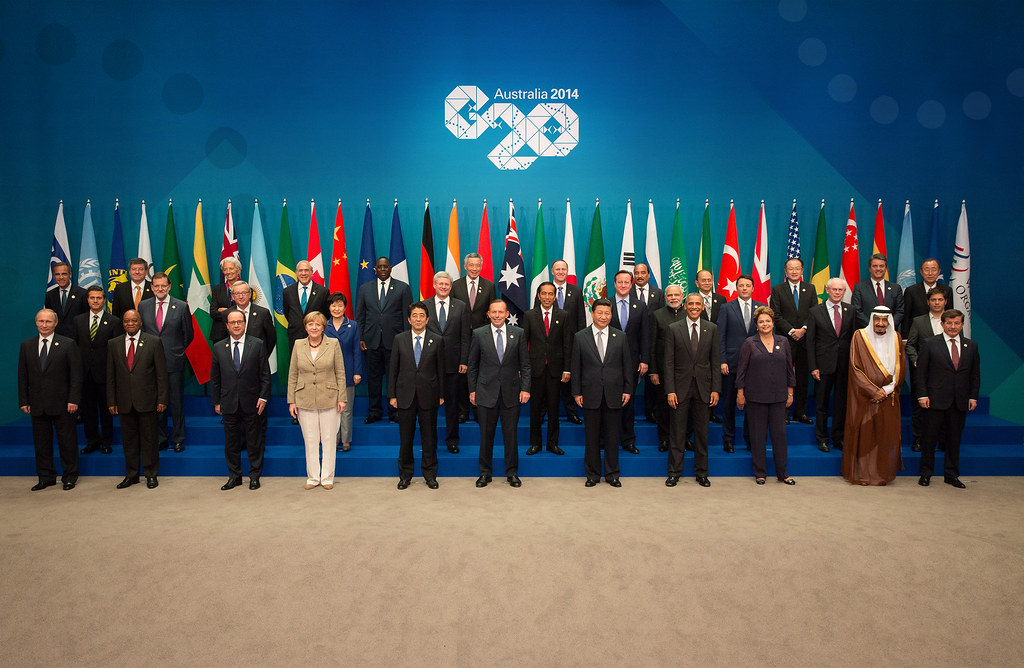The G20 summit, historically viewed as the arena for significant global economic discussions, recently delved deeply into the evolving landscape of blockchain and cryptocurrencies. The main outcome? A noticeable shift towards international cooperation and a global consensus against the banning of cryptocurrencies.
Historical Context

The G20, representing 19 countries, the European Union, and accounting for 85% of global economic output, had previously highlighted concerns over the potential financial stability risks posed by cryptocurrencies. Emphasizing the importance of regulatory and supervisory measures, they have persistently recognized the FATF guidelines, particularly the risk-based approach to virtual assets and the need for strong KYC and AML standards. Central Bank Digital Currencies (CBDCs) have piqued the interest of various countries, and by 2021, the G20 took cognizance of ongoing research and pilot projects. The summit also underscored the significance of understanding the broader implications of digitalization on the global economy.
Why the Renewed Focus?
At the summit, Finance Minister Nirmala Sitharaman’s characterization of crypto as both a “threat and an opportunity” shed light on the intensified focus on this sector. Sitharaman stressed the undeniable need for global cooperation to craft an efficient financial ecosystem around cryptocurrencies.
Regulatory Landscape

The sentiment was echoed by IMF’s Gita Gopinath, who highlighted the alliance between the Financial Stability Board and the IMF in addressing crypto assets comprehensively. Contrary to some speculations, Gopinath noted that there’s no talk of banning cryptocurrencies. This, she believes, showcases a global consensus against such regulatory measures. The vision now is to move away from treating the crypto market as the “Wild West” to a landscape of improved transparency.
The Path Ahead

The consensus declaration signed by G20 leaders underscores their commitment to swiftly implement the Crypto-Asset Reporting Framework (CARF) and amendments to the CRS. These decisions underline a commitment to bringing transparency to the crypto realm. Further, Gopinath reiterated that while broad principles have been set, detailed regulations are still in the pipeline. The international community anticipates these regulations will differentiate based on the purpose of crypto assets, whether for speculative investments or payments.
Global Reactions
The crypto communities globally have largely responded positively, welcoming the G20’s approach. The decision against banning cryptocurrencies and the commitment to creating a cohesive framework has been well-received, signaling a hopeful future for blockchain and cryptocurrency on the global stage.
The progressive stance taken by the G20 marks a pivotal moment in the journey of cryptocurrencies from a nascent, speculative market to a mature, regulated financial ecosystem. As nations gravitate towards a harmonized approach, the doors are flung wide open for a cascade of innovative Web3 solutions. These developments hold the promise of a world where crypto, as a native currency, fosters economic growth and financial inclusion in responsible and sustainable ways. The synergy between governments and the crypto sector can pave the way for a flourishing global economy, buttressed by transparency, efficiency, and a renewed spirit of cooperation. The future seems not only promising but also ripe with opportunities for a revolutionary digital transformation that touches every aspect of human life, from business to personal finance. It is a hopeful precursor to a new era where technology and governance walk hand in hand, ushering us into a future where the boundaries between the digital and physical worlds are seamlessly bridged, fostering a globally connected, empowered, and prosperous society.





